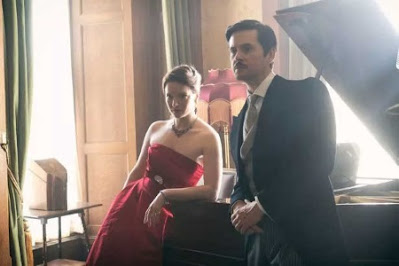Murder is Easy
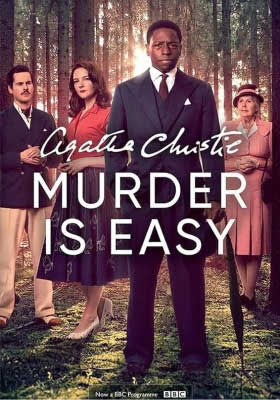
Director: Various
Year: 2023
Rating: 6.5
Agatha Christie is in
fashion again and so of course is murder. In truth, she has never really
fallen out of fashion though deceased now for nearly 50-years. The same could
not be said of her contemporary Cozy mystery writers during what is termed
the Golden Age of Mysteries. Fine writers such as Dorothy Sayers, Michael
Innes, Edmund Crispin, Margery Allingham and my favorite John Dickson Carr
are not much remembered except by the fans of those types of mysteries.
But Christie is different. Over the past few years some really good TV adaptations
have been made of some of her books. Such as The A.B.C. Murders, Ordeal by
Innocence, The Crooked House, Witness for the Prosecution and the terrific
And Then There Were None. Add this one to the pile of films with more coming
I understand.
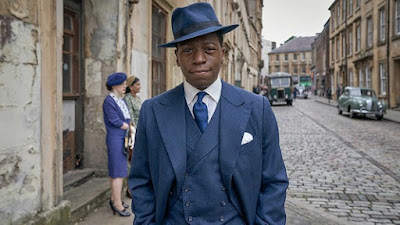
Christie's book from 1939 has been adapted
twice already. Back in 1982 with Bill Bixby and Leslie Ann Warren it was
tepid tea at best and then in the Miss Marple series with Julia McKenzie
they turned the book into a Miss Marple film. Which sort of makes sense in
that it takes place in a small English village which is Marple's forte. But
in the book the case is solved by a retired police officer by the name of
Luke Fitzwilliam. His name is kept for this film but instead of being a retired
copper, he is now a new arrival in England who is set for a job at the Home
Office. From Nigeria. And black. This fact got many people riled up - screaming
wokeness - and it came in for the usual racist disparagements like the black
mermaid and the black star trooper did. But I thought it added some
much needed layers to keep it interesting. They also added class and women
issues which only managed to annoy those folks even more. The film takes
place in 1954 when race, class and women's rights were basically being ignored.
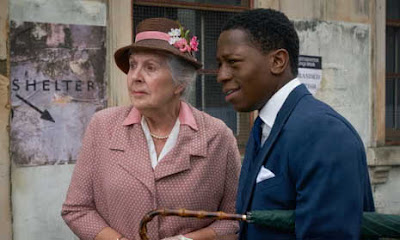
But upfront the film otherwise follows Christie's
crime fairly closely. Luke (David Jonsson) has been offered a position at
Whitehall and has just arrived from Nigeria. On the train to London, he is
joined in the car by a little old lady - the Miss Marple of her small English
idyllic village. She tells him she is going to Scotland Yard. Why? To report
three murders. By a perfectly respectable person. Murder is easy, you see
if you are above suspicion. She tells him the victims names but not the name
of the killer. Would not be much of a mystery if she did. And then she is
run over. He decides to go to the village and see what he can find out -
his Nigerian friends tell him - are you crazy, a black man in a small village
asking questions is only asking for trouble. When he gets there all the villagers
look at him like he has stepped off a spaceship. But this doesn't turn into
The Heat of the Night. The Brits are too polite for that.
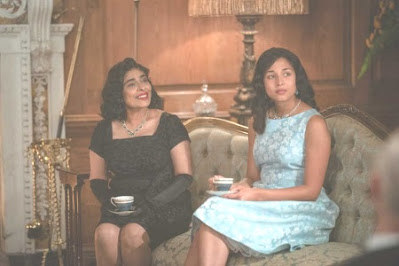
He pretends to be writing a book on comparing
English and Nigerian folktales. And more people begin to die. All "accidents"
according to the police. Both of the two other versions came in at 90-minutes
and this should have done the same cutting out some 30-minutes of nothing
much happening to tighten it up. The woman on the train is played by Penelope
Wilton, one of those wonderful British actors who show up all the time and
you are glad they do. She was in 52 episodes of Downton Abbey and a zillion
other things. Like all of these recent Christie adaptations, the acting is
tops - David Jonsson is terrific, there are also Matthew Baynton as the doctor
who thinks killing undesirables is a good idea, Tom Riley as the pompous
Lord, Nimra Bucha as the Indian woman married to the Reverend and Morfydd
Clark as the finance of the Lord.





